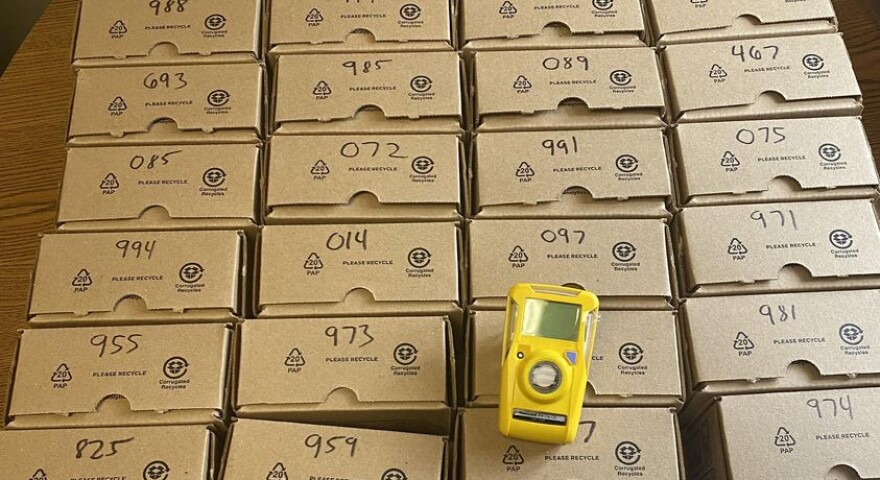HARRISBURG, Pa. — Parents in Allentown can sleep a little easier at night, thanks to a new policy from Gov. Shapiro’s administration.
- Gov. Shapiro’s office will give up to two free carbon monoxide detectors to certified childcare providers in Pennsylvania
- This is because of a carbon monoxide leak at Happy Smiles Learning Center in Allentown last October, in which 27 children and five adults were hospitalized
- Currently, there are no laws that mandate child care providers have carbon monoxide detectors at their facility
According to a news release, Shapiro is making carbon monoxide detectors free to certified childcare providers in the Commonwealth of Pennsylvania.
The policy was created after an Oct. 27 carbon monoxide leak at Happy Smiles Learning Center in Allentown. The leak caused 27 children and five adults to be hospitalized.
An investigation by UGI utilities found the leak was caused by a malfunctioning heating unit and blocked venting system.
It wasn't until paramedics were called to help an unconscious child that a portable carbon monoxide detector went off and officials realized there could be a leak.
Three children were transferred to the Children’s Hospital of Philadelphia for more aggressive care and hyperbaric oxygen treatments.
“The incident at the child care center in Allentown last year was a reminder to us all to protect our homes and businesses from the dangers of carbon monoxide," said Brandon Cwalina, a state Department of Human Services spokesman.
Carbon monoxide is an odorless, invisible gas, and symptoms of carbon monoxide poisoning are flu-like and can include headaches, dizziness, weakness, vomiting or confusion.
According to the U.S. Centers for Disease Control and Prevention, at least 420 people die and 100,000 visit emergency departments in the United States because of accidental carbon monoxide poisoning.
Working for change
Katherine Rivera, who works at Sunflower Daycare Center in Allentown, said she approves of the program.
"It's a good idea," Rivera said, "especially for the daycares starting that don't have the budget to get new stuff that they may not be able to afford."
Another daycare worker, Mile Rivera of Sonia's Little Angels in Fountain Hill, said the program doesn't go far enough.
"That program sounds good, but they should give the whole amount — not only two," she said. "Provide the daycare whatever they really need."
At her daycare there are eight detectors, one for each room.
She also said carbon monoxide detectors should be mandatory for child care providers.
Currently, there is no regulation or law that requires detectors in childcare centers.
DHS Acting Secretary Dr. Val Arkoosh said the state is working to change that.
"DHS is committed to working internally as well as with the General Assembly to explore regulatory and/or legislative changes, that address this issue and further protect children and support child care providers,” Arkoosh said.
Until then, the program is supposed to be a vital stopgap measure.
“This opportunity will help providers increase protections at their facility right away,” he said.
He urged them “to take advantage of this opportunity to get new carbon monoxide detectors."
The state Office of Child Development and Early Learning will use federal funds to buy the detectors. It will partner with School Health to distribute them.
Certified childcare providers in the state already have been sent a promotional code to redeem them.
“Without detectors,” Arkoosh said, “it is not possible to detect a leak before people start to feel sick.”
The deadline to take advantage of the program is April 30.

